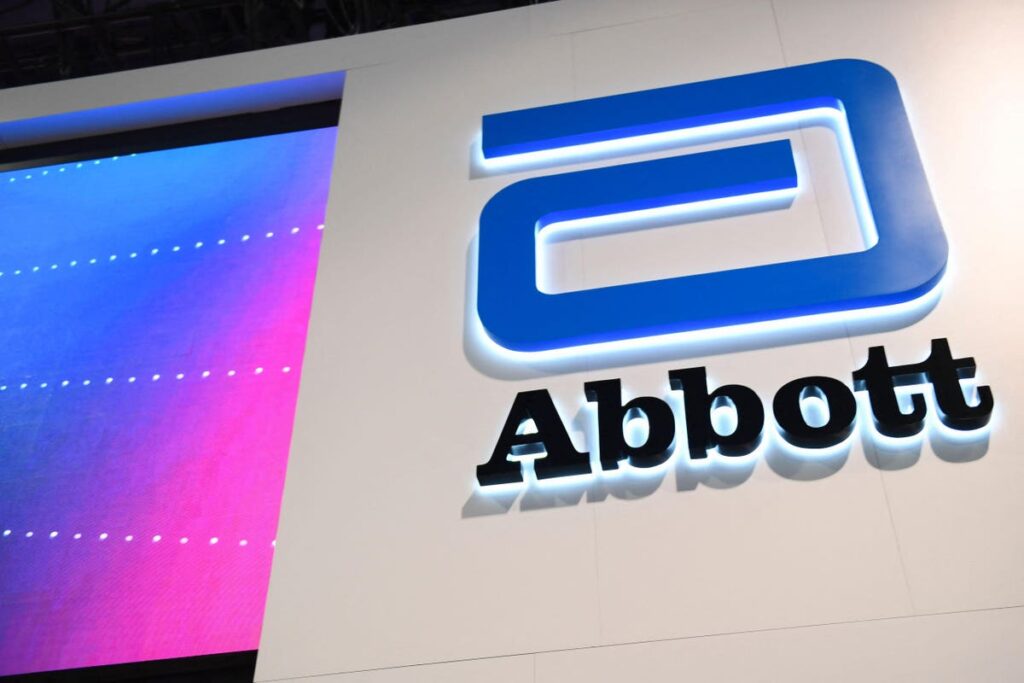Abbott Laboratories wearables with a biosensor are performing well with consumers in the United … [+]
Abbott Laboratories wearables with a biosensor are performing well with consumers in the United Kingdom, a test market that precedes an eventual U.S. regulatory filing before the end of this year for these devices known as “biowearables,” the company’s CEO said Tuesday.
Abbott, which already has a top-selling continuous glucose monitor for diabetes management known as Libre that generates more than $4 billion in sales annually, is developing a new line of biowearables known as Lingo that tracks glucose levels, ketones and lactate.
This new category of consumer biowearables, which attach beneath the skin to give more precise and accurate data about what is going on in someone’s body, is the latest evolution in medical devices for Abbott. The healthcare company is already known for its nutritionals franchise led by Similac baby formula, established pharmaceuticals and diagnostic tests for everything from the HIV virus and cancer to its top-selling array of tests for Covid viruses and its latest variants.
“We are creating a new consumer biowearable that not only tracks your glucose levels, but, using AI, delivers a personalized coaching plan to help you develop healthier habits, and motivate you to do the hardest thing: modify and adapt your behaviors and habits,” Abbott chief executive Robert Ford said at HLTH 2023 in Las Vegas. “We call it Lingo, because it helps you speak the language of your body and what it’s telling you. This is not futuristic stuff. In fact, Lingo has been released in the UK and we intend to make it available across the globe, including here in the U.S., where we plan to submit our filing to the FDA by the end of the year.”
Ford highlighted the differences between Lingo and the company’s already top-selling Libre franchise.
“Lingo starts by establishing a baseline reading of your body’s glucose levels and their fluctuations through the sensor that is worn on your arm,” Ford said. “The tech assesses how your diet, exercise, sleep, and other factors affect your glucose. And that is unique to each person.”
A “coaching algorithm” highlights for the patient or user where they can improve, offering recommendations and an individualized plan of action for their ongoing healthcare decision-making.
“Core to this coaching is something we call the ‘Lingo Count,’” Ford said. “The Lingo biosensor tracks your glucose levels in real time and assigns each glucose spike with a value. The more you spike, the more Lingo counts you accrue. And your goal each day is to not go over your daily Lingo Count.”
Given Lingo is more than merely a device for people with diabetes, Abbott is stressing the long-term potential of “health and tech converging” beyond the already gigantic diabetes market.
“We believe access to this kind of knowledge will motivate us to act – to make better decisions in the best interests of our health and wellness,” Ford said. “And if we can make the experience intuitive – even enjoyable and gratifying – we can help affect behavior change and create healthier people and societies.”


